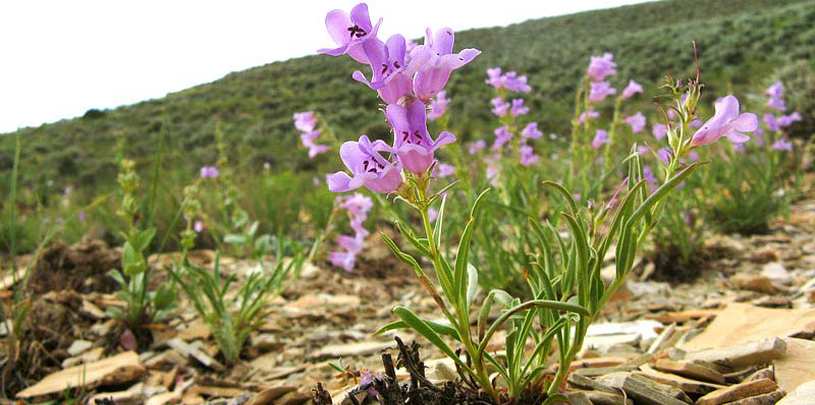
 by Anne Mariah Tapp, Energy Director
by Anne Mariah Tapp, Energy Director
Today, the Trust, as part of a broad coalition of conservation groups, filed a complaint in federal court in Denver challenging the U.S. Fish and Wildlife Service’s decision to deny Endangered Species Act protection to two imperiled wildflowers in Utah and Colorado. Proposed fossil fuel development - namely oil shale - threatens 100 percent and over 85 percent of the known White River and Graham’s beardtongue populations, respectively.
In 2013, the Fish and Wildlife Service proposed to protect Graham’s and White River beardtongues and some of their most important habitat under the Endangered Species Act, including nearly 68,000 acres of Graham’s beardtongue habitat and 15,000 acres of White River beardtongue habitat. But under pressure from Utah state agencies, county governments, and the oil shale industry, they denied the plants the protection that comes from the listing and critical habitat protections. Instead, they are relying on a 15-year voluntary “conservation agreement” negotiated with Utah state agencies, Uintah County, the oil shale industry, and others.
This lawsuit is designed to provide the imperiled plants the protection the populations need to survive.
Arizona Governor Katie Hobbs is the latest elected official to call for an environmental review of Pinyon Plain uranium mine.
Read MoreDr. Laura Crossey explains what scientists know about groundwater in the Grand Canyon region.
Read MoreMore than 275,000 pounds of radioactive materials imported from the Japan Atomic Energy Agency headed to Utah's White Mesa Mill.
Read More